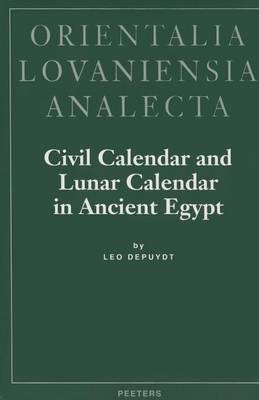This investigation is concerned with ancient Egyptian calendars. Its specific focus is one of the oldest problems of the study of these calendars: the so-called problem of the month names. This work's main purpose is to suggest an explanation for the Brugsch phenomenon. The Brugsch phenomenon is one of the two main aspects of the problem of the month names. The other is the Gardiner phenomenon. No new theory is presented for the Gardiner phenomenon. As a problem, the Brugsch phenomenon is slightly older than the Gardiner Phenomenon. It has occupied center stage in the study of ancient Egyptian calendars since the early days of this endeavor. In 1870, Heinrich Brugsch, the great pioneer in this subject, wrote about the phenomenon, "Here we encounter all at once the most curious contradiction." Just recently, Rolf Krauss has described the contradiction as still "unsolved". The Brugsch phenomenon concerns the indisputable fact that the last or twelfth month of the Egyptian civil year can be named as if it were the first. Two month names are involved. The first is wp rnpt. Its meaning "opener of the year," refers to a beginning.
The second month name is mswt r' "birth of Re" in hieroglyphic Egyptian, Mesore in Aramaic, Greek and Coptic. Both can otherwise also refer to New Year's Day, the quintessential calendrical beginning.
- ISBN10 9068319086
- ISBN13 9789068319088
- Publish Date 1 January 1997
- Publish Status Active
- Publish Country BE
- Imprint Peeters Publishers
- Format Hardcover
- Pages 274
- Language English
